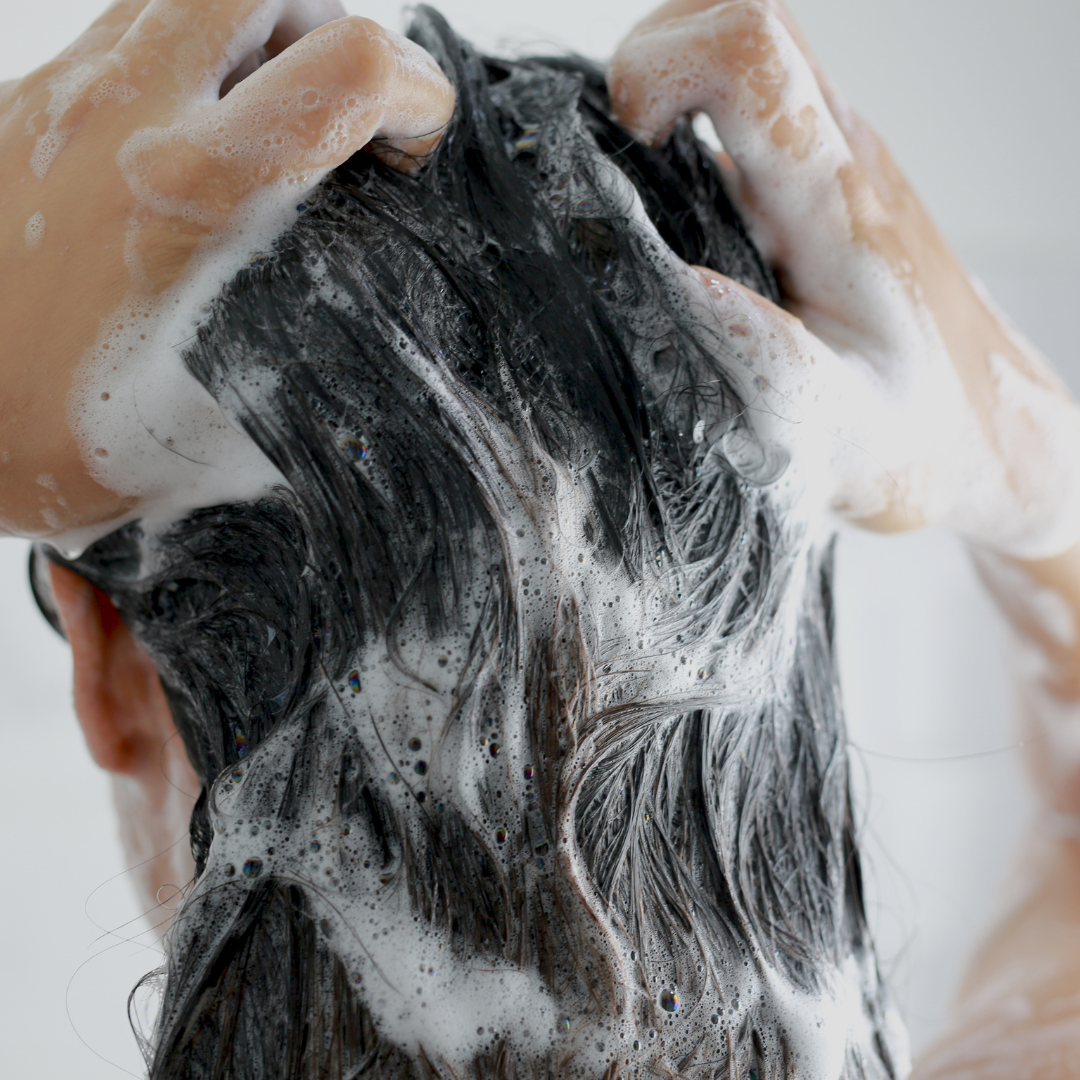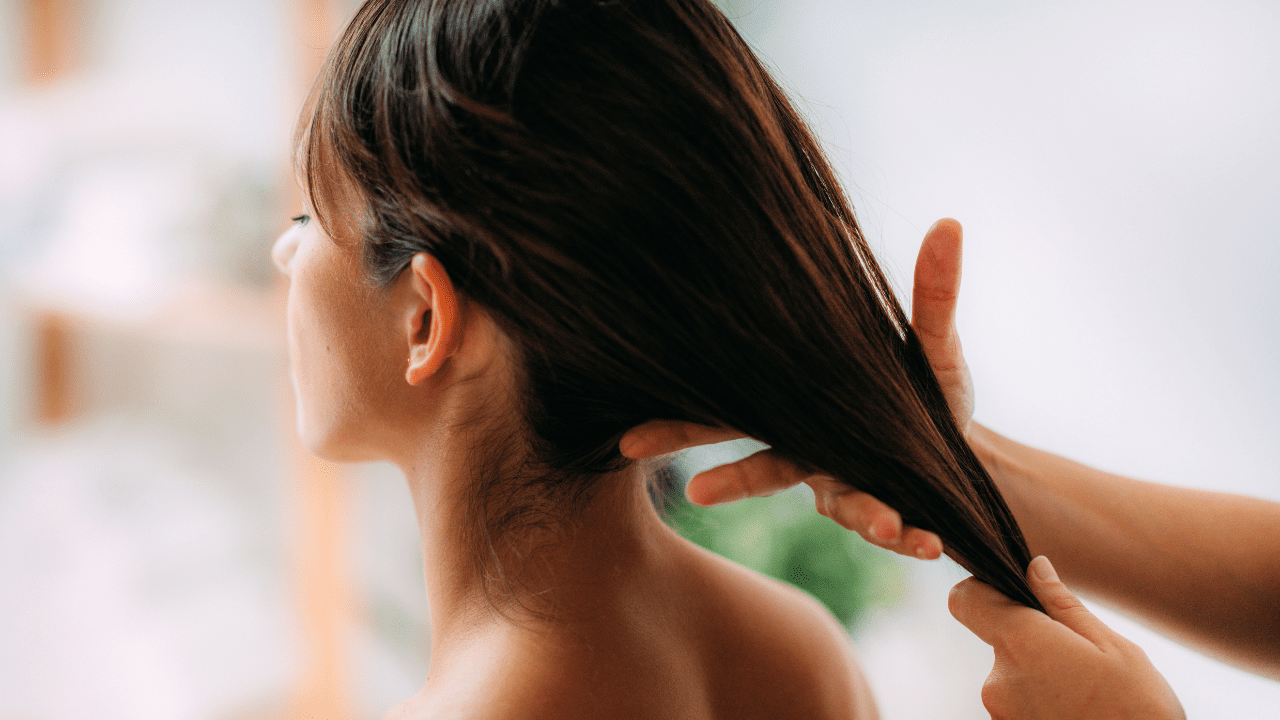Have you heard there are some shampoo ingredients that cause hair loss? Shampoo is an essential part of our daily grooming routine, utilized to cleanse the scalp and hair strands, so how can shampoo cause hair loss? While most shampoos promise to improve the health and appearance of your hair, there are some shampoo ingredients to avoid. Some people will try to fix their hair with products such as argan oil or other products to protect their hair from damage, however the most valuable thing you can do is be aware of the damage causing chemicals you are using every day. Understanding these ingredients and their effects is crucial for maintaining the health and vitality of your hair. In this article, we discuss the properties of shampoo causing hair loss and delve into the depths of ten shampoo ingredients that you need to stay away from, shedding light on their mechanisms and potential risks, so you can prevent hair loss from shampoo products and begin your path towards hair restoration.
Sodium Lauryl Sulfate (SLS): Does Sodium Lauryl Sulfate Cause Hair Loss?
Sodium Lauryl Sulfate (SLS) is a common surfactant found in many shampoos, responsible for creating lather and removing dirt and oil from the hair and scalp. However, SLS can be harsh and stripping, causing irritation and inflammation of the scalp. So if you’re wondering if sulfates cause hair loss- the answer is yes. Prolonged use of SLS-containing shampoos may disrupt the natural balance of oils on the scalp, leading to weakened hair follicles and eventual hair loss. This is why we’ve included SLS as one of the shampoo ingredients that cause hair loss on our list.
Fast Fact
If you’re interested in learning more about what shampoos cause hair loss a licensed Trichologist can provide you with guidance on what products to avoid and what is the best shampoo and conditioner for you and your scalp type.
Sodium Chloride: Is Sodium Chloride Bad For Hair?
Sodium Chloride, commonly known as table salt, is often added to shampoos as a thickening agent. While it doesn’t directly cause hair loss, high concentrations of sodium chloride can dehydrate the scalp, making it more prone to irritation and inflammation. This can indirectly contribute to hair loss by weakening the hair follicles and impeding healthy hair growth.
Parabens: Another Ingredient In Shampoo That Causes Hair Loss.
Parabens are preservatives commonly used in cosmetic products, including shampoos, to prevent microbial growth and extend shelf life. However, studies have suggested that parabens may disrupt hormone balance in the body, potentially interfering with the hair growth cycle and leading to increased hair shedding and thinning.
Formaldehyde:
Formaldehyde is one of the most significant ingredients that causes hair loss. Formaldehyde-releasing preservatives, such as DMDM hydantoin and imidazolidinyl urea, are often found in shampoos and other personal care products as antimicrobial agents. However, formaldehyde is a known carcinogen and skin irritant, and its presence in shampoos can cause scalp irritation, inflammation, and hair loss, particularly in individuals with sensitive skin. This is definitely a chemical in shampoo that causes hair loss and something to avoid.
Polyethylene Glycols (PEGs): Petro based Chemicals That Can Cause Hair Loss
Polyethylene Glycols (PEGs) are petroleum-based compounds commonly used in shampoos as thickeners, solvents, and moisture carriers. While PEGs themselves are not considered harmful, they can become contaminated with ethylene oxide and 1,4-dioxane during the manufacturing process, both of which are known carcinogens and skin irritants. Prolonged exposure to PEGs and their contaminants may lead to scalp irritation, follicle damage, and hair loss.
Propylene Glycol:
Propylene Glycol is a common humectant and solvent found in shampoos, responsible for retaining moisture and enhancing product texture. While generally recognized as safe in low concentrations, high levels of propylene glycol can cause scalp irritation and allergic reactions, leading to hair loss in susceptible individuals.
Synthetic Fragrances:
Synthetic fragrances are added to shampoos to impart pleasant scents and enhance the overall sensory experience. However, these fragrances often contain a complex mixture of chemicals, some of which can be irritating to the scalp and trigger allergic reactions. Prolonged exposure to synthetic fragrances may result in scalp inflammation and hair loss, which is why we’ve added them to our list of what ingredients to avoid in shampoo for hair loss.
Diethanolamine (DEA) and Triethanolamine (TEA):
Diethanolamine (DEA) and Triethanolamine (TEA) are commonly used as emulsifiers and pH adjusters in shampoos. While they help create a stable formulation, DEA and TEA can react with other ingredients to form potentially harmful compounds called nitrosamines, which are known carcinogens. Chronic exposure to nitrosamines may damage hair follicles and contribute to hair loss. The inclusion of these chemicals can lead to the creation of shampoos that make your hair fall out.
Silicones:
Silicones are synthetic polymers added to shampoos to impart shine, smoothness, and manageability to the hair. While silicones can temporarily improve the appearance of the hair, they can also create a barrier that prevents moisture and nutrients from penetrating the hair shaft. Over time, this can lead to dryness, brittleness, and hair breakage, exacerbating hair loss.
Isopropyl Alcohol:
Isopropyl Alcohol, also known as rubbing alcohol, is commonly used in shampoos as a solvent and antiseptic agent. While it helps dissolve other ingredients and remove excess oil from the scalp, isopropyl alcohol can be extremely drying and irritating, leading to scalp inflammation and follicle damage which is why we are including it on our list of shampoo ingredients to avoid for hair loss prevention. Prolonged use of shampoos containing high concentrations of isopropyl alcohol may contribute to hair loss and scalp sensitivity.
Other Chemicals To Avoid and Be Aware Of : Cocamidopropyl Betaine & Phenoxyethanol
Cocamidopropyl betaine, a surfactant derived from coconut oil and dimethylaminopropylamine, is a common ingredient in shampoos and other personal care products. Valued for its ability to produce a rich lather and enhance product texture, it’s widely used for cleansing the skin and hair. However, despite its popularity, cocamidopropyl betaine has been associated with allergic reactions and skin irritation in some individuals, particularly those with sensitive skin. Allergic reactions can lead to contact dermatitis, characterized by redness, itching, and inflammation. While direct evidence linking cocamidopropyl betaine to hair loss is limited, scalp irritation and dryness from allergic reactions may indirectly impact hair health over time.
Phenoxyethanol, a common preservative used in cosmetics and personal care products, serves as an effective antimicrobial agent. It prevents bacterial growth, extending product shelf life. Despite its widespread use, concerns have arisen regarding potential adverse effects, including skin irritation and allergic reactions. Individuals with sensitive skin may experience redness, itching, or inflammation in response to products containing phenoxyethanol. While direct evidence linking phenoxyethanol to hair loss is scarce, prolonged scalp irritation may indirectly impact hair health over time. As with any ingredient, individuals should be mindful of their skin’s reaction and discontinue use if adverse effects occur.
Conclusion:
Can a shampoo cause hair loss? While shampooing is an essential part of hair care, it’s crucial to be mindful of the ingredients contained within your chosen products. Many chemicals that make your hair fall out are used in common shampoo ingredients, such as Sodium Lauryl Sulfate, Parabens, and Formaldehyde, which have been linked to scalp irritation, inflammation, and hair loss. By opting for gentler, more natural formulations and avoiding potentially harmful ingredients, you can help maintain the health and vitality of your hair, promoting optimal growth and minimizing the risk of hair loss in the long run. At Alopecia and beyond our team can provide you with all of the information you need about shampoos to avoid hair loss. Book a free consultation with us today to learn more about how you can protect your hair.




